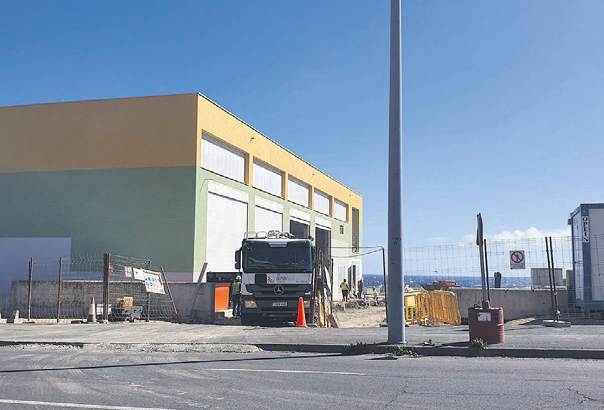
“If the Edari does not have a biological process to treat industrial wastewater on March 28, at two in the afternoon, we will have to proceed to the closure of the Valle de Güímar Industrial Estate.” That is how resounding the regional deputy councilor for the Fight Against Climate Change, Miguel Ángel Pérez, expressed himself, after announcing that this Monday the three city councils of the region and the Insular Water Council will be informed of the authorization to discharge until that date, “the last authorization, because there will be no more”, he remarked.
Pérez pointed out that, in the event that this biochemical process to treat the water with heavy metals is not working before March 28, the Agency for the Protection of the Urban and Natural Environment has an order to close the polygon, “a hard stick, because almost three thousand people would be left without work,” said the deputy minister. In addition, he recalled that the date of March 1 as the end of the authorization was set by the municipalities of Candelaria, Arafo and Güímar, as well as by the Insular Water Council itself, since in November they could have set it until August, when they planned to finish the entire Edari. “It’s not our fault that authorization expired now,” he said.
As of this Monday, once the resolution reaches the three town councils, the UTE and the Ciaft, the new stage plan approved on the 28th by the three consistories will be complied with, obliged to take the discharges to the the only industrial treatment plant in Tenerife, the one recently built in Polígono La Campana, by municipal initiative and against the opinion of the Cabildo government group.
In this plan of stages it is contemplated that in the first week, from 7 to 14, 22% of the flow of industrial waters of the Polígono will be taken daily, while in the second week it will be increased to 25%. In addition, a tank will be available at the Arafo Wastewater Treatment Plant to store 1,500 cubic meters until it can be discharged into the sea from the outfall, once the biochemical processor is installed that allows, for example, the removal of aluminum particles. According to the mayor of El Rosario, Escolástico Gil, today the La Campana treatment plant would fit 240 of the 250 cubic meters that it can accommodate as maximum capacity.
Convention and vats
El Rosario has not put any impediment for these waters to reach the La Campana treatment plant, but it determined, for this, the signing of an agreement that was approved yesterday by the Government meeting and transferred to the town halls of Arafo, Güímar and Candelaria to have them sign it.
Arafo and Candelaria approved it in full, with the opposition abstaining, except Vecinos por Candelaria, who voted with the PSOE in the Villa Mariana. In Güímar, the Governing Board approved it, having delegated the powers in the matter, to the displeasure of the former mayor Luisa Castro, who insists that “the Edari and the emissary is the responsibility of the Cabildo, not of the municipalities and they must be who should solve the problem and pay for the barrels”.
The transfer in vats will begin this Monday, at a cost of 45,945 euros per month for each city council, some of which are already planning to transfer them to the Insular Water Council, despite the fact that its president, Javier Rodríguez, insists that “discharges are powers of the municipalities”, the same thing that the municipal secretary of Candelaria, Octavio Fernández, said yesterday in the plenary session.















